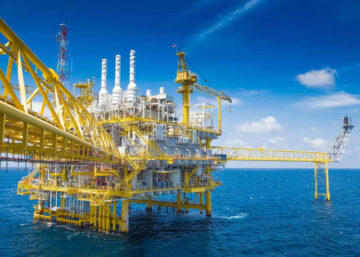The host facility for the world’s deepest offshore oil and gas project is a floating production, storage and offloading (FPSO) vessel. It is the thirteenth FPSO in Shell’s global deep-water portfolio and produces through subsea infrastructure beneath 9,500 feet (2,900 meters) of water. Stones underscores Shell’s long-standing leadership in using FPSOs to safely and responsibly unlock energy resources from deep-water assets around the world.
“Stones is the latest example of our leadership, capability, and knowledge which are key to profitably developing our global deep-water resources,” said Andy Brown, Upstream Director, Royal Dutch Shell. “Our growing expertise in using such technologies in innovative ways will help us unlock more deep-water resources around the world.”
Stones, which is 100% owned and operated by Shell, is the company’s second producing field from the Lower Tertiary geologic frontier in the Gulf of Mexico, following the start-up of Perdido in 2010.
The project demonstrates Shell’s commitment to realizing significant cost savings through innovation. It features a more cost-effective well design, which requires fewer materials and lowers installation costs; this is expected to deliver up to $1 billion reduction in well costs once all the producers are completed.
The FPSO is also specially designed to operate safely during storms. In the event of a severe storm or hurricane, it can disconnect and sail away from the field. Once the weather event has passed, the vessel would return and safely resume production.
Shell’s global deep water business is a growth priority for the company and currently produces 600,000 boe/d. Deep-water production is expected to increase to more than 900,000 boe/d by the early 2020s from already discovered, established reservoirs. Three other Shell-operated projects are currently under construction or undergoing pre-production commissioning: Coulomb Phase 2 and Appomattox in the Gulf of Mexico and Malikai in Malaysia.
Visit the Stone’s Project Page for further information.



